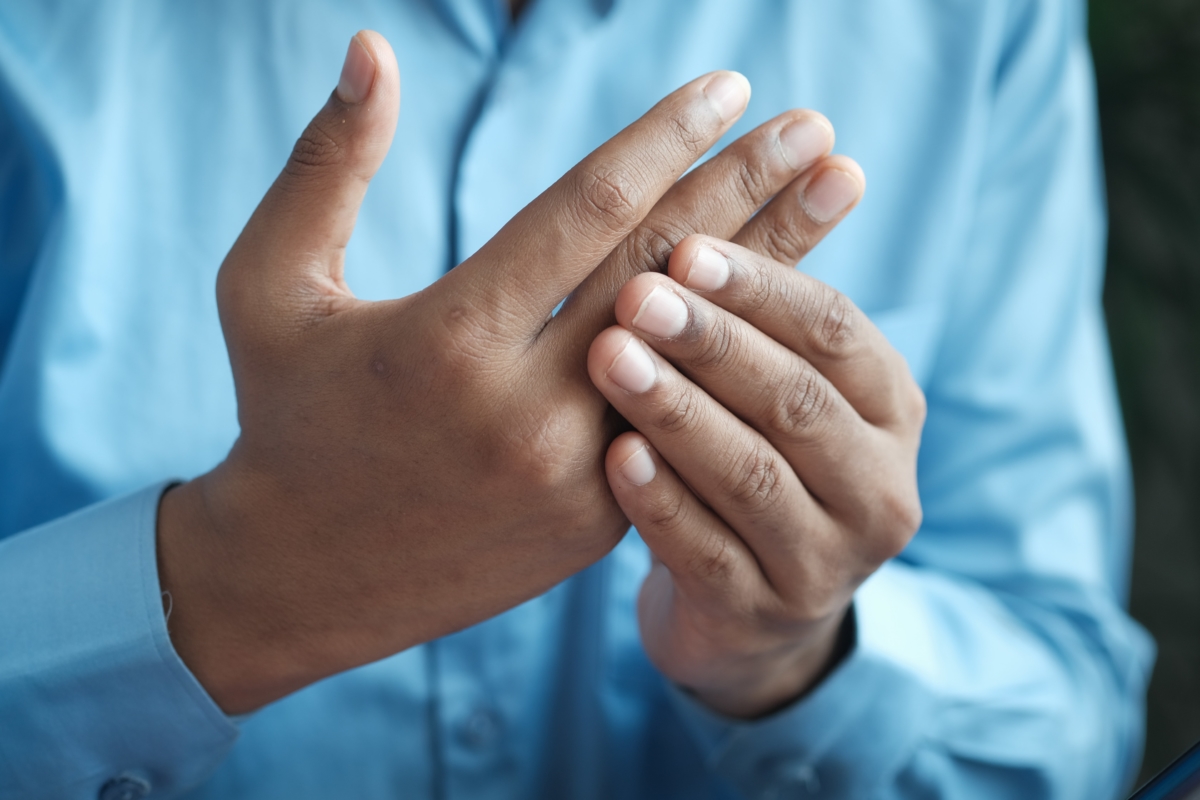7 Tips to Help Ease Joint Pain Naturally
Joint pain is no joke. Uncomfortable at best and debilitating at its worst, nothing puts a damper on your day-to-day life like dealing with painful joints. Luckily, there are several simple at-home remedies and lifestyle changes you can incorporate to help ease this pain! Keep reading below for our best tips on how to help joint pain naturally.
Disclaimer: It’s important to discuss any potential natural remedies with your doctor, as some options may not be suitable for everyone. If your symptoms are severe, sudden, unexplained or last for more than several weeks, visit your physician as soon as you can.
1. Epsom Salt Soak
Epsom salts are a classic remedy for easing joint pain or muscle aches. Not only are they accessible and inexpensive, they offer quick relief when you’re feeling sore or stiff. Epsom salts are high in sulfates and magnesium, so they can lower inflammation and relax tense areas. They are also easily absorbed through the skin, so soaking in a warm bath with Epsom salts or using a compress directly on your body can do wonders.
Add two cups of Epsom salts to a warm bath and soak for twenty minutes, or dilute two cups in a gallon of warm water with a towel to use as a compress.
2. Move Your Body
Exercise is key for fighting joint pain! By strengthening the muscles that support your joints, gentle exercise can actually take a lot of the stress off these affected areas. Try low-impact exercises like swimming, water aerobics, walking, cycling or yoga to stay active while reducing stiffness and prolonged aches.
An added bonus? Exercise produces those feel-good endorphins that actually can help to relieve pain!
3. Use Cold and Hot Packs
The hot-and-cold method is well-known for immediate relief of joint pain. Start with a hot pack (any type of therapeutic gel pack should work) and apply to your aching area for 15-20 minutes; immediately follow up with a cold ice pack for another 15-20 minutes. Doing this daily can make a huge impact on inflammation. You can also incorporate essential oils such as peppermint or eucalyptus to help reduce swelling and discomfort – just be sure to dilute them a bit first.
4. Stretch Regularly
The irony about joint pain is that, if you’re not moving due to these aches, your immobility may actually be making the pain worse. Regular, gentle stretching can do wonders to help maintain your mobility and keep stiffness at bay! Try to find stretches that are safe and appropriate for your joint discomfort level. A physical therapist or doctor can also help assist in finding the right exercise for your situation.
5. Get Lots of Rest
Though it may not seem directly related to joint aches, a restful night’s sleep is essential to heal your body and help manage pain. Work in habits that help you get a good night of rest, such as establishing a regular bedtime routine, making your room dark and quiet, and removing electronics.
6. Try Acupuncture
Acupuncture is an ancient Chinese healing practice involving very fine needles placed on certain problem areas that has been known to help some people manage and reduce chronic pain.
While the acupuncture in Eastern medicine focuses on the concepts of bodily energy, Western medicine’s take on how acupuncture works is slightly different. According to Medical News Today, one of the most common explanations is that inserting these small needles underneath the skin sends signals to the brain to release endorphins; acupuncture may also stimulate blood flow, relax muscles, help regulate the immune system, and stimulate cortisol production, which can help control inflammation.
Some people who receive this treatment feel relief from symptoms and some don’t, so it’s important to speak with a licensed healthcare provider to help you make the best decision for yourself.
7. Modify Your Diet
You may not notice any instant changes in joint pain by modifying your diet, but it’s one of the simplest ways to help prevent long-term aches and soreness. If you feed your body nutritional foods that fight against inflammation, which is the root cause of joint pain, over time you can lessen the symptoms you experience from that inflammation.
Eating fresh vegetables and fruits, in addition to Omega-3 fatty acids found in foods like chia seeds, walnuts and salmon, can help immensely to lower inflammation in the body. Additionally, limiting or removing processed foods that can cause severe inflammation may help.
OceanView at Falmouth
OceanView at Falmouth is truly Maine independent living for the 21st century! We offer all the benefits of fun activities, fitness, continued education and fine dining without any of the stress related to a career or homeownership. Pursue your interests (and discover new ones!) and enjoy your retirement years to the fullest at OceanView. Contact us today!







